I’ve been reading a book called The Autoimmune Brain, because our daughter has a disease that causes brain inflammation and autoimmunity. I decide to read the section on nutrition. Probably a mistake. Note that this doctor is highly regarded in the area where my daughter has her issues.
The author makes the statement “Diets that are high in saturated fats negatively affect brain functions and increase the risk of neurological diseases.” Page 109 of the version I have. And I say to myself, “What?”.
For this statement, he cites to this reference:
https://www.sciencedirect.com/science/article/pii/S0197458014003558?via%3Dihub
The first-listed author is Neal D. Barnard. I don’t even have to read the study to know that that author will do anything possible to make meat look bad.
It’s a “review”, so they were trying to gather many studies to make a conclusion. There are so many problems with this “study”. They only used 12 studies, and ALL of them were based on “prospective” studies using FFQs (food frequency questionnaires). Right there, I find this disqualifying:
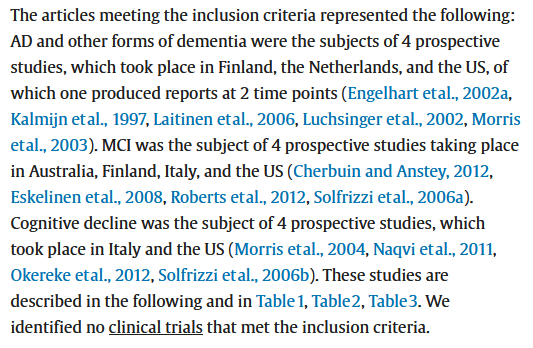
This is the kind of garbage they are using:
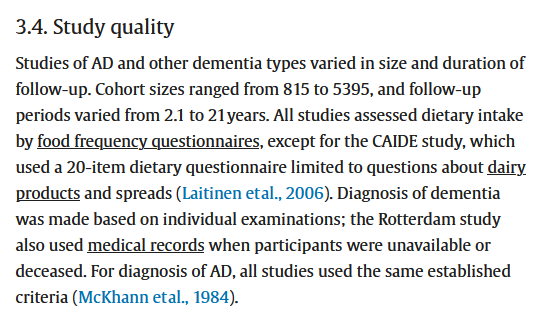
What this means is that they gave someone a FFQ, then followed them … for up to 21 years. And in that time, assuming they ate exactly the same thing.
And these are all the caveats and conflicts:
I’m not sure where to start. If there are some prospective studies that do not indicate a relationship between saturated and trans fat intake and the risk of cognitive problems, how can one say these are causative? And what do saturated fats have to do with trans fats? Why are they lumped together?
And this is a paragraph where they are laying out the possible mechanisms by which “saturated fats” could cause dementia:

Saturated fat causes glucose toxicity? Ah, what?
I look at this study and say it’s complete crap. Because it is complete crap. Yet one of the premier doctors about inflammation and autoimmunity is hoodwinked into believing this garbage, or perhaps never looked at the study and just believes this because it’s what everyone believes?
I am disappointed.
Anyone else analyze a book’s nutrition info and get disappointed?

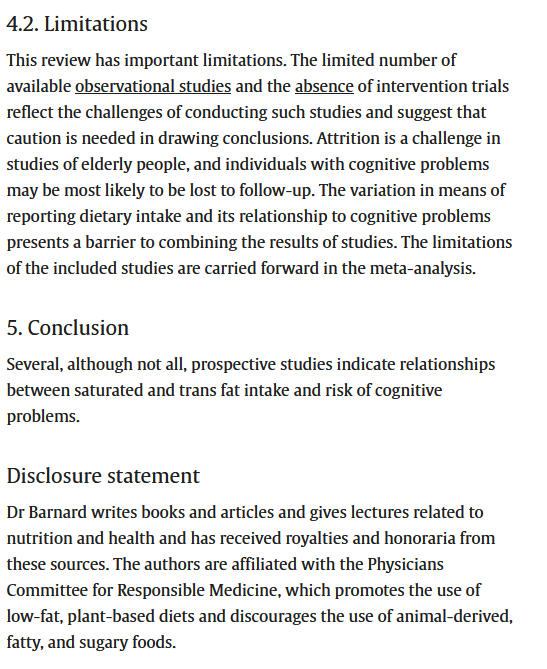
 I am interested so I do these things… It’s not nice but something compels me to act like that…
I am interested so I do these things… It’s not nice but something compels me to act like that… I’m so used to the b.s. studies now but it still affects me like fingernails on a chalkboard.
I’m so used to the b.s. studies now but it still affects me like fingernails on a chalkboard.
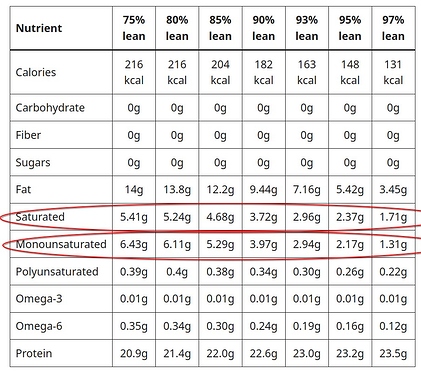

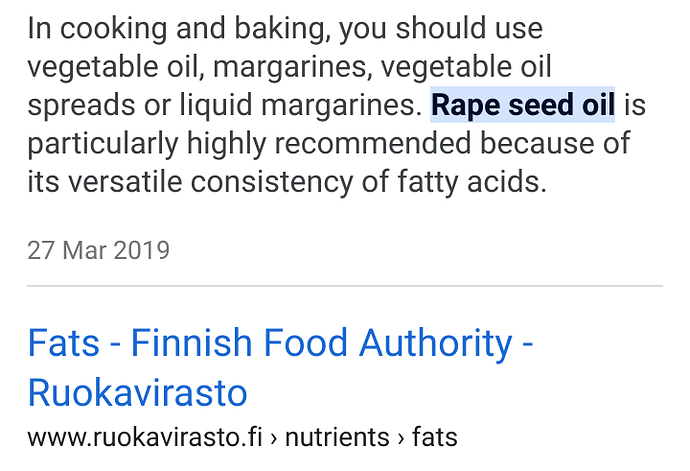
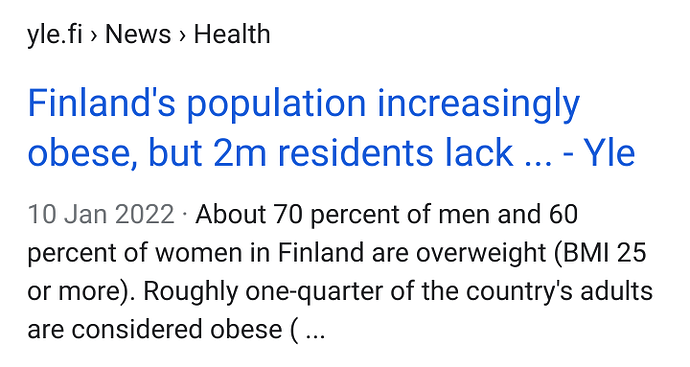

 . The difference is… I don’t eat anything else… that meat is my energy source.
. The difference is… I don’t eat anything else… that meat is my energy source.